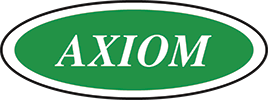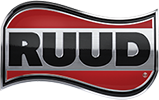Are you routinely selling maintenance agreements or service contracts to your residential customers? Many of the larger national and local service companies treat these agreements as business-as-usual. It makes sense for small to mid-sized shops to do the same.
Maintenance agreements have been called “recurring revenue machines” and “the ultimate profitmakers.” What they provide, in the real everyday world of a service business, is predictability. In unpredictable times, a maintenance agreement is revenue you can count on.
But there’s a right way and a wrong way to approach these contracts for ongoing service. When done right, they’re a win-win for you and your clients. For you, they keep your trucks busy with predictable, steady work. They allow you to flip the switch from being reactionary — getting the bulk of your calls when things go wrong — to preventative and predictable.
Done wrong, and they can end up being more hassle than they’re worth.
Here’s the lowdown on maintenance agreements, what they are, why they matter and how best to sell them.
Maintenance Agreements 101
A good maintenance agreement accomplishes several things. It gives service businesses predictable business and cashflow, gives homeowners peace of mind, and helps prevent small problems from becoming big emergencies.
If you’re selling the agreement around a new piece of equipment — a new hot water heater or air conditioner, say — scheduled maintenance protects that investment, ensuring it is running the way it should.
These agreements also encourage loyalty and relationships with customers, which a business can’t put a price on.
Typically, they will include information about:
- The types of services you will provide
- Payment terms
- Duration — the length of the agreement
Common Mistakes
As we mentioned, there’s a right way and a wrong way to approach maintenance agreements. Here are some common mistakes and pitfalls to avoid.
Not training your field technicians in sales. People go into the skilled trades for various reasons — they enjoy working with their hands, they love not being in an office all day, and more. One thing’s for sure: They don’t go into the business to be salespeople. Your techs will need training in how to offer these agreements. It’s about a natural conversation, not a hard sell. “Hey, you could save money by doing this.”
Making the agreements too complicated. Customers don’t want to feel like they’re signing their life away. So, keep it simple. Include the services you’ll provide, how much it will cost the homeowner — it’s crucial to keep the pricing simple so people know what they’re paying for — when the services will occur, and how long the agreement is in effect.
Not offering incentives to your team. Make it worth their while to go the extra mile.
Not focusing on benefits to the customer. A maintenance agreement will prevent emergencies, keep equipment running efficiently, extend equipment life and save money in the long term.
Not creating clear, simple materials your techs can give to customers. A one-pager listing the benefits of a maintenance agreement is all you need.
Not promoting it. Highlight your maintenance agreements on your website, in your social posts, even on your invoices.
Bottom line, maintenance agreements are a win for both you and your customers!






